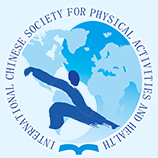Document Type
Abstract
Keywords
obstructive sleep apnea, cardiopulmonary function, exercise, systematic review, meta-analysis
Publication Date
2-2023
Abstract
Obstructive sleep apnea (OSA) is a common sleep disorder characterized by repeated episodes of apnea and hypopnea during sleep. Snoring and daytime sleepiness are the most common manifestations of OSA. Patients with OSA are considered to have poor cardiopulmonary function. Exercise has been proposed as a treatment for OSA that could lower apnea hypopnea indices (AHI) and improve sleep quality. Study shows that constantly aerobic exercise improved cardiopulmonary function in patients with chronic heart failure. However, whether exercise training will benefit cardiopulmonary functioning in patients with OSA is still in doubt. The purpose of this review is to investigate the effect of exercise on cardiopulmonary functioning in adults with OSA by summarizing the results of clinical trials. A systematic review of the PubMed, Web of science, Wan Fang and CNKI databases was conducted for randomized controlled trials (up to October, 2021; language in English or Chinese) comparing exercise treatments to no exercise treatments for patients with OSA. Focused outcomes included AHI, VO2peak, mean oxygen saturations (SaO2mean%), lowest oxygen saturations (SaO2min%), sleep quality (PSQI scale), and quality of life (ESS scale). Pooled data were assessed by using random-effects. This study adhered to the PRISMA guidelines. Of 262 identified studies, 12 were eligible and included in final analysis (N = 530 adult participants). Compared to no exercise treatment, exercise yielded an improved mean reduction in AHI of 6.69 [95%CI: -8.50 to -4.87], an improved mean increases in VO2peak of 0.98 [95%CI: 0.39, 1.57], besides, PSQI and ESS scores decreased by 2.1 [95%CI: -3.95 to 0.24] and 6.69 [95%CI: -8.50 to 4.87], respectively. Although SaO2min% and SaO2mean% were improved by exercise, the improvement was clinically small. Exercise can improve multiple aspects of functioning in patients with OSA, including AHI, sleep quality, quality of life, and cardiopulmonary functions. Exercise is thus recommended as a potential therapeutic strategy to improve conditions of patients with OSA.
DOI
https://doi.org/10.18122/ijpah.020114.boisestate
Recommended Citation
Peng, Jiale and Ren, Hong
(2023)
"Effects of Exercise on Cardiopulmonary Function in Patients with Obstructive Sleep Apnea: A Systematic Review and Meta-Analysis,"
International Journal of Physical Activity and Health: Vol. 2:
Iss.
1, Article 14.
DOI: https://doi.org/10.18122/ijpah.020114.boisestate
Available at:
https://scholarworks.boisestate.edu/ijpah/vol2/iss1/14
Included in
Exercise Science Commons, Health and Physical Education Commons, Public Health Commons, Sports Studies Commons


